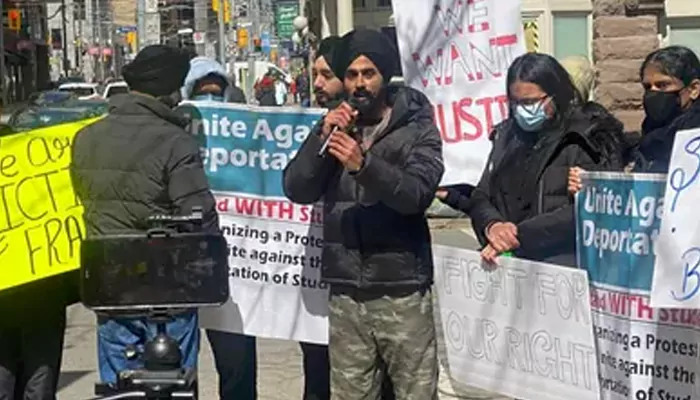Kamala Harris Makes Her Mark in First TV Interview: Key Moments From Her Debut Broadcast Interview
- Nomeeta
- 1 year ago
- 4 minutes read

Kamala Harris mentioned that while her values have not changed, her experience as vice president has offered her a new perspective.
Vice President Kamala Harris and her running mate, Minnesota Governor Tim Walz, sat down for their first significant television interview of the campaign. In this critical appearance, Harris addressed her evolving stance on key issues, emphasizing that while her “values have not changed,” her time as vice president has given her a new perspective. As the 2024 presidential race intensified, Harris and Walz shared important insights into their campaign and core positions. Let's delve into the major takeaways from the interview.
On Fracking and Climate Change Position
Ms. Harris highlighted her commitment to addressing climate change and supporting the Green New Deal—a Democratic initiative aimed at reducing dependence on fossil fuels—when questioned about her changing policy positions. However, she did not clarify her reversal on banning fracking (a technique for extracting gas and oil from shale rock) which is particularly significant in the battleground state of Pennsylvania.
During a CNN town hall in 2019, Ms. Harris had unequivocally stated, “there is no question I'm in favor of banning fracking.” However, since becoming vice president, she has walked back that stance, even casting the tie-breaking vote in the Senate on new fracking leases. In a recent CNN interview, she stated, “As president, I will not ban fracking.”

On Policies Biden Has Pursued
Harris' plans do not represent a complete shift from the policies Biden has implemented during his term. However, she has placed a greater emphasis on affordability in her messaging, rather than on job creation or manufacturing gains, which were key focuses for Biden. Earlier this month, she introduced an economic policy plan centered on reducing costs for essentials like food, housing, and childcare, with a particular focus on taking stronger actions against corporations. Her proposals include measures to combat price gouging and increase the construction of affordable housing.
Harris Echoes Biden on Israel
When questioned about whether she would take a different approach from Biden regarding the Middle East, particularly on limiting arms sales to Israel, Harris aligned closely with his stance. She refrained from committing to any specific actions. “We have to get a deal done. This war must end, and we must get a deal that is about getting the hostages out,” she said.
On Biden and His Decision to Withdraw from the Race
“He has the intelligence, the commitment and the judgment and disposition that I think the American people rightly deserve in their president,” Harris said. The US Vice-President expressed no remorse when she described Biden as “exceptionally strong” even after his troubled performance at the CNN debate in Atlanta. Recalling the day when Biden, after enduring weeks of pressure, declared his decision to withdraw from the race, Harris shared that she was at home, flipping pancakes and frying bacon for her nieces, when the phone rang. “It was Joe Biden, and he told me what he had decided to do,” she recalled.

On Appointing a Republican to Her Cabinet if Elected
Harris mentioned in the interview that, if elected, she would appoint a Republican to her cabinet, although she hadn't settled on a specific candidate. This move would revive a tradition from the past several decades—one that Trump and Biden did not follow—of presidents including at least one member from the opposing party in their cabinet. She explained, “I think it’s important to have people at the table when some of the most important decisions are being made that have different views, different experiences. And I think it would be to the benefit of the American public to have a member of my Cabinet who was a Republican.”












